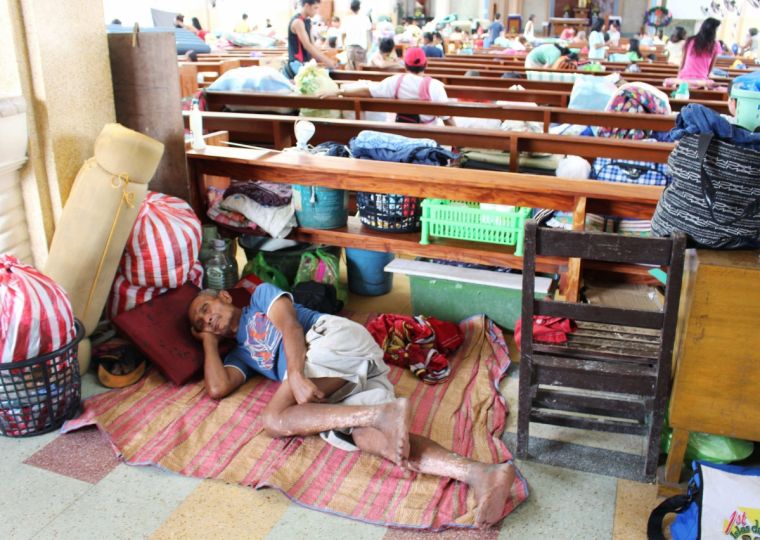After Typhoon Hagupit strikes, Philippines says impact of climate change is 'beyond our capacity already'

With a million people evacuated from their homes ahead of the arrival of Typhoon Hagupit, the Philippines is learning the lessons of years of powerful storms.
But the country warns that the impact of climate change is stretching it beyond what it feels able to cope with.
The Philippines has long experience coping with flooding and typhoons, including building warning and evacuation systems - but those measures may not be enough to cope with the worsening impacts of climate change, the country's climate chief warned.
As powerful Typhoon Hagupit hammered the Philippines this weekend – the second year in a row the country has been battered by a major storm during the UN climate negotiations – the country's negotiators called for a work plan to establish a "loss and damage" mechanism to help vulnerable countries deal with growing unavoidable losses.
Mary Ann Lucille Sering, secretary of the Philippines climate change commission, urged world leaders to respond to the increasingly costly and damaging impacts of global warming.
"Every year since 2008, typhoons have become the backdrop of the climate change conference," Sering said. That worsening weather means that a way of dealing with growing losses and damage must be part of a climate deal expected to be reached in 2015 in Paris," she said.
Typhoon Hagupit made its first landfall in Dolores town in eastern Samar on Saturday, following almost the same path taken by last year's Typhoon Haiyan. The storm brought heavy rains, storm surges, flooding and landslides in densely populated areas of the country.
The Philippine government had already evacuated millions of people to higher ground.
'BEYOND OUR CAPACITY ALREADY'
Sering said such heavy annual storms mean "the impacts of climate change are beyond our capacity already".
"Our country's experience makes our work here (in Lima) so much more meaningful, as this is no longer just a job for us but a fight for our survival and the future of our nation," she said.
"We hope that the Philippine experience, no matter how difficult, can help unite all nations to take more concrete actions on climate change," Sering said.
"Loss and damage", which became a prominent theme during the 2013 Warsaw climate change summit, refers to those impacts of climate change which cannot be avoided or adapted to, and therefore result in loss of life, livelihoods, ecosystems, cultures or potentially whole nations in the case of low lying island nations threatened by rising sea levels.
A proposed mechanism to deal with it would commit richer countries who have contributed most to climate-changing emissions to giving financial assistance to poorer nations as well as sharing knowledge and technology.
At last year's climate summit, Philippines climate commissioner Naderev "Yeb" Sano made an emotional appeal to governments to speed up action on climate change as Typhoon Haiyan wreaked havoc in the country, killing more than 6,000 people and leaving millions homeless.
Sano, whose hometown of Tacloban was among those most strongly affected by the storm, carried out a two-week-long hunger strike during the negotiations in solidarity with families suffering at home.
NEW TEST
According to Vicky-Tauli Corpuz, a special rapporteur on the rights of indigenous peoples, the new typhoon ravaging many parts of the Philippines will be a further test of the capacity of the Philippine government and the Filipino people to respond effectively to worsening climate change and natural disasters.
"It will show whether we learned from the past typhoons, especially from Typhoon Haiyan last year," Corpuz said.
"For indigenous peoples who are directly affected by Typhoon Hagupit, I hope the government will ensure that relief and rehabilitation will reach them and that their struggle to have their land rights recognised will be hastened so they will have a better chance of adapting to disasters," she said.
Voltaire Alferez, national coordinator of Aksyon Klima, a coalition of 40 Phillippines civil society groups working on climate issues, said that the mechanism for dealing with loss and damage must be clear and incorporated into the 2015 climate deal.
"We are not here to call for sympathy, much less pity. We are calling for solidarity, action from all governments," he said.
"We are not debating anymore at the Lima climate summit on whether the impacts of climate change are real. We should be taking action now," Alferez said.
Source: Reuters











